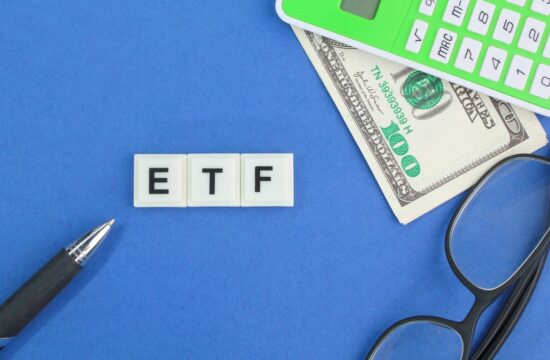Cryptocurrencies have become a popular topic recently. In case you aren’t familiar with the term, cryptocurrencies are digital currencies that can be stored online as tokens. They can be used as a medium of exchange or to store value like other traditional currencies such as the US dollar, Euro, and Yen. The number of people who own cryptocurrencies has grown rapidly in the last few years. So what exactly is a cryptocurrency? What makes it different from traditional money? How do you buy and sell them? Let’s take a look at all you need to know about these emerging digital currencies.
Cryptocurrency Basics
You have probably heard about cryptocurrencies and blockchain technology. It’s almost impossible to ignore these trends. The media is full of articles about them. There are many videos on Youtube, in which famous personalities explain the benefits of this technology. Even schools and universities are offering courses related to blockchain and crypto coins now. With that being said, not everyone understands what these words mean or how they can be useful in real life. Are you also one of those people? Do you want to know more about cryptocurrencies and their underlying technology – the blockchain? Keep reading to find out everything you need to know about cryptocurrency and its underlying technology – the blockchain.
What is a Cryptocurrency?
A cryptocurrency is a digital or virtual currency that uses cryptography for security. A cryptocurrency is difficult to counterfeit because of this security feature. A defining feature of a cryptocurrency, and arguably its most endearing allure, is its organic nature; it is a currency that is created by a community of individuals, rather than a government. Cryptocurrencies exist only as data and not as physical objects; this means that you cannot touch, feel, or hold them. While this may seem peculiar or unfamiliar, the same thing can be said about other types of money, like stock certificates or government-issued bonds.
A Brief History of Cryptocurrencies
The first-ever cryptocurrency was Bitcoin, which was created by Satoshi Nakamoto in 2009. While the general concept of a cryptocurrency and the blockchain was around for many years before that, Bitcoin was the first to put everything together and make it work. Bitcoin’s underlying technology (the blockchain) is what makes it so secure and decentralized. Other cryptocurrencies, such as Ethereum and Litecoin, have also been created since then. There have been many ups and downs in the cryptocurrency world since the first Bitcoin was created. This includes a dramatic rise in popularity and value, followed by a steep decline in value, followed by a dramatic rise in value again. It’s important to understand that this is not a new phenomenon. The same things have happened to the stock market (and other asset markets) many times throughout history.
The Basics of the Blockchain Technology
A blockchain is a decentralized digital database that is used to record transactions across many computers. It has become a popular technology because it is tamper-proof and trustworthy. It has many uses, but the blockchain is primarily used in cryptocurrency transactions. With a blockchain database, there is no need for a bank or third party to verify the transaction. The database does that itself by recording the actions taken by all participants. This makes the system almost impossible to hack since it is decentralized and not stored in one place.
How Are These Two Related?
Cryptocurrencies like Bitcoin are created and stored in a digital wallet. It is a virtual wallet that is only accessible via the internet. This wallet stores your private key, which acts as your proof of ownership of the cryptocurrency. Your private key is like a username and password in one. It allows you to access your wallet, send the coins inside it to someone else, and receive coins from other wallets. A blockchain is a technological infrastructure behind a cryptocurrency. It is a distributed ledger that records transactions and transactions of a specific cryptocurrency. Since it is decentralized across many different computers, there is no need for a centralized database that is controlled by one company or individual.
Who Created These Technologies?
The concept of blockchain has existed since 2008 and the first cryptocurrency was created in 2009. However, the creator of cryptocurrencies may be anonymous. The creator of this technology is known as Satoshi Nakamoto, who may or may not be a single individual. The concept of cryptography also dates back to the early days of the Internet. However, many different people have contributed to its development over the years.
Why Should You Care About These?
Cryptocurrencies and blockchain technology can change the world as we know it. They have the potential to improve many industries, from finance to healthcare and everything in between. The most important thing is that cryptocurrencies are decentralized and not governed by any one country. This means that they can’t be controlled by any one government. This also means that they can be accessed by anyone, anywhere in the world.
Summary
Cryptocurrencies and blockchain technology are revolutionary technologies that are changing the world as we know it. They make financial transactions easier, more secure, and more accessible to everyone. They can also be useful in many other industries, such as healthcare, supply chain management, and more.
Cryptocurrency Trading
Cryptocurrency investing is no longer the territory of computer science majors and coders. It’s now one of the most talked about areas in the financial world, with an entire segment of the market dedicated to virtual currency trading. In this article, we look at what cryptocurrency is, how it works and its risks as an investment. We also go through some of the pros and cons of investing in cryptocurrency and list some recommended brokers that traders new to the space can use to get started. So read on, if you want to learn more about cryptocurrency trading!
How Does Crypto Trading Work?
Cryptocurrency trading is the buying and selling of a digital currency. The most common way to do this is through a cryptocurrency exchange. You will need to open an account with the exchange, deposit funds and then buy the currency you want to trade using those funds. After you have done this, you can set a price at which you’re willing to sell your holdings. Moreover, you can also see what the current market price is for the cryptocurrency you want to buy or sell. You can then decide how long you want to wait before initiating a trade. This will largely depend on how volatile the price of the currency is. The more volatile the price, the shorter the timeframe you should set for your trade.
Is Cryptocurrency Trading Risky?
Yes, cryptocurrency trading is risky. If the market drops, you will lose money on your investment. Even if the market rises, it’s not guaranteed you’ll make a profit. So, you must have a clear strategy in place that will allow you to manage risk. You also need to be aware that cryptocurrency is unregulated. This means that nobody is looking out for your best interests. For instance, it’s common for cryptocurrency exchanges to be hacked and have customer funds stolen.
Pros of cryptocurrency trading
- Accessible: Anyone can invest in cryptocurrencies, so long as they have an internet connection and the required funds to do so. Traders can open accounts with cryptocurrency exchanges from their laptop or desktop computer, or even their smartphone.
- Efficient: Because cryptocurrencies are traded 24/7, you can set up a trade and forget about it. You don’t have to wait for the market to open and end on a specified day.
- Diversified: Investing in just one type of cryptocurrency is risky. It’s better to diversify your portfolio by investing in a range of different cryptos.
- Liquidity: Cryptocurrencies are traded on almost every financial market. This means you can easily exchange bitcoin for Ethereum, or vice versa.
Cons of cryptocurrency trading
- Volatility: Cryptocurrencies are highly volatile assets. This means that their prices fluctuate wildly. You may have to accept that the price of a coin you buy today could be worth much less tomorrow.
- Lack of regulation: Although the cryptocurrency market is growing, it’s still largely unregulated. This means that you are not guaranteed of receiving the same level of service that you would expect from a standard financial institution.
- High risk: Cryptocurrency trading is highly speculative. This means you may lose your entire initial investment. It’s important to diversify your portfolio, so that you reduce your risk.
- Complexity: The world of cryptocurrency trading is complex. It’s easy to make mistakes if you’re a beginner. It’s important to do your research and find a trusted cryptocurrency broker.
Summary
Cryptocurrency trading is a complex and ever-changing landscape. It’s important to stay informed about the latest news and developments in the space as they can affect the performance of your portfolio. Although cryptocurrency trading is a risky endeavor, it’s also an exciting one that can be rewarding when done right. To get the most out of your trading, you need to follow a proven strategy and use the right tools.
Crypto Wallets
It’s no secret that the crypto world is currently booming. As a result, there has been an increased demand for digital wallets to store your digital currency. A crypto wallet is a software program that stores your private and public keys for your blockchain assets so you can access them easily. Having the right kind of crypto wallet will allow you to conveniently receive and make payments from friends, family, businesses, or even strangers. There are different types of crypto wallets available on the market, but not all of them are created equal. Some can be more secure than others or have other features that may be useful to you depending on how often you trade or transact in cryptocurrency. Here we’ll discuss the different types of crypto wallets so you can select the one that is right for you.
What is a Crypto Wallet?
Crypto wallets are software programs or applications that store your private and public keys. Private keys are used to access your blockchain assets, and public keys are used to receive them. There are different types of crypto wallets available on the market, and not all of them are created equal. Some can be more secure than others or have other features that may be useful to you depending on how often you trade or transact in cryptocurrency. For example, if you want to use crypto for everyday purchases, a crypto wallet that supports both credit cards and debit cards would be useful. Crypto wallets usually come with a wallet address that is basically a long alphanumeric string. You can share this address with others so that they can send you funds. To send funds, you have to have your private key. Each crypto wallet has its own unique addresses and private keys, so you have to be careful not to lose these or share them with the wrong people.
Software Wallets
A software wallet is a digital wallet that is hosted on your computer, laptop, or mobile device. This means you will be responsible for keeping your device secure and up-to-date with the latest software. Software wallets like Jaxx, Mycelium, Blockchain, and Electrum are mainly used on computers and laptops, but there are some mobile software wallets like Coinomi and Jaxx that can be used on both computers and smartphones. A software wallet can be installed on your computer or mobile device and used for storing cryptocurrency. But software wallets are less secure than hardware or paper wallets. Because they are stored on your device, if someone manages to get access to your computer or mobile device, they can steal your crypto assets. However, this is not the case with other crypto wallets, like hardware and paper wallets, which we will discuss below. Also, a software wallet is convenient because it’s easy to use and can store several cryptocurrencies. But unlike a hardware wallet, you have to be connected to the internet to make transactions. So if you’re in a place with poor internet connection, it will be difficult to transfer your funds to another wallet or exchange.
Hardware Wallets
Hardware wallets are physical devices used for storing cryptocurrency. These devices store your private keys in a secure area that is not connected to the internet. This means that the private keys can’t be hacked or infected by a virus. Hardware wallets are considered to be the most secure crypto wallets. There are both online and offline hardware wallets. Online hardware wallets are connected to the internet so that you can make transactions from anywhere. Offline hardware wallets are used to store your cryptocurrencies when you don’t want to make transactions. Security is the main advantage of using a hardware wallet. All your funds are stored in a device that is not connected to the internet. This means that a hacker can’t access your funds by hacking into your device. Your device can be stolen, but the thief can’t access the funds stored in the device. The main disadvantage of hardware wallets is that you can use them only when you are near the device. If you aren’t near your device, then you can’t make any transactions.
Desktop Wallets
Desktop wallets can be installed on your computer, laptop, or desktop. They are also software wallets that store your private keys. The main advantage of a desktop wallet is that it’s easy to use. You can simply download the wallet and start storing your cryptocurrencies. A desktop wallet is secure if it’s open source. This means that the source code is available online so that anyone can review it for any security issues. You can also choose the wallet that has a strong reputation and has been used by many people for a long time without any issues. The main disadvantage of a desktop wallet is that if your computer gets infected with a virus or gets hacked, your private keys will also be at risk. So you must regularly update your computer with the latest antivirus software and install the latest operating system updates.
Web-based wallets
A web-based wallet is a type of online wallet that can be accessed through a website. Web-based wallets are hosted by third parties, so you don’t have full control over your crypto assets. The third-party provider is responsible for keeping your wallet safe and secure. However, if they aren’t careful and don’t follow best practices, your funds may be at risk. Some well-known web-based wallets are MyEtherWallet and MetaMask. The main advantage of a web-based wallet is that you can easily access your funds from any device that has an internet connection. So if you are traveling or don’t have your hardware wallet with you, you can still send or receive crypto funds. Another advantage is that you don’t have to install any software on your computer or mobile device and you can access your wallet from any device, including smartphones. The main disadvantage is that you don’t have full control over your crypto assets and it’s not recommended for storing large amounts of funds.
Mobile Wallets
A mobile wallet is a type of application for smartphones that allows you to send, receive, and store your crypto funds. These wallets are convenient because you can use them anywhere. You can send or receive funds by using your smartphone and internet connection. This is different from desktop wallets, which you can only use on a computer. The main advantage of a mobile wallet is that it’s easy to use and you can store all your cryptocurrencies in the same place. Unlike desktop wallets, a mobile wallet can be installed on your smartphone, so you can always have access to your funds. The main disadvantage is that a smartphone can be lost or stolen. In this case, whoever has your phone can gain access to your crypto funds, which means you have to be careful not to lose your smartphone.
Summary
Crypto wallets are software programs or applications that store your private and public keys. This is where you store your crypto assets. There are different types of crypto wallets available on the market, and not all of them are created equal. Some can be more secure than others or have other features that may be useful to you depending on how often you trade or transact in cryptocurrency.
Crypto Markets
Few things are as exciting and volatile as the world of cryptocurrency. In just a few years, we’ve seen the market for these digital assets grow from a niche interest to a $600 billion market. However, this new and rapidly growing space is not without its risks. The volatility of these markets means that investors need to be cautious when dedicating their capital to them. This section will give you everything you need to know about the current state of crypto markets and what you should keep in mind if you’re thinking about investing in them.
What is a Crypto Market?
Crypto markets are online exchanges where cryptocurrencies can be bought and sold. To purchase these digital coins, investors deposit traditional fiat currencies like USD into their accounts on crypto exchanges and then use that money to buy cryptocurrencies with it, a process that’s often referred to as “going long.” When investors want to sell, they can simply sell those cryptocurrencies back into the market for their fiat currency again. Crypto exchanges are often referred to as markets because they have prices that fluctuate based on supply and demand. Interestingly, the first ever crypto market was the world’s first cryptocurrency itself, Bitcoin. When the first Bitcoin exchange, BitcoinMarkets.com, was founded in 2010, not many people had even heard about cryptocurrencies, let alone invested in them.
What is the difference between cryptocurrency and crypto markets?
Cryptocurrency refers to the coins and tokens that are used as a medium of exchange between parties in a variety of industries. These digital assets are decentralized, which means they are not managed or issued by a government. Instead, they are created and distributed through a process referred to as “mining.” Crypto markets, or the exchanges on which these digital assets are bought and sold, are completely separate from cryptocurrency. Bitcoin is only one of countless cryptocurrencies, and exchanges like Coinbase or Binance are where you trade it for other currencies like USD.
Why are Crypto Markets So Volatile?
There are a few reasons why crypto markets are so volatile. For one, no one knows what the future holds. Everything from economic conditions, to political events, and even the weather can have a huge impact on the value of crypto assets. Volatility is also inherent in the idea of trading with crypto assets. After all, if you could predict the future, you’d likely be investing in something a bit more traditional. What’s more, the majority of investors in crypto markets are retail traders. This means that a high percentage of traders don’t have a long-term strategy and are simply buying and selling cryptocurrencies based on how they feel the market is trending. That’s not to say that there aren’t long-term investors in the crypto markets. Many people have made a fortune from investing in cryptocurrencies. However, there’s a reason why the saying “Buy low, sell high” is so commonly used. When investing in any market, you want to buy assets when their value is low and sell them when their value is high. Unfortunately, predicting the future is notoriously tricky, which is why many investors prefer to buy assets that are tied to more traditional assets like stocks and bonds.
Institutional Investments and Regulations
Institutional investors, who manage large amounts of money on behalf of clients like pension funds, pensions, and insurance companies, are largely responsible for the crypto markets’ wild swings up and down. Over the past year, many of these institutional investors have only been able to buy “non-institutional” crypto assets. This means that they can buy these coins and tokens using their own funds, but they can’t invest them using their clients’ money. The reason for this is that the majority of crypto exchanges don’t have the right licenses and permits to allow these investors to buy tokens and coins using their clients’ funds. Indeed, many institutional investors have expressed concern over the fact that crypto exchanges don’t have any regulatory oversight. However, this looks set to change over the next few years. The U.S. Securities and Exchange Commission (SEC) is currently reviewing regulations for crypto exchanges. If these exchanges are regulated, institutional investments could see crypto markets shoot up to trillions of dollars.
Which Coins Should You Be Watching Right Now?
Bitcoin is the most well-known cryptocurrency in the world, but it isn’t the only one that’s worth keeping an eye on. Many experts believe that the rise of altcoins will be what leads to the next bull run in crypto markets. If you’re looking to invest in altcoins, you should be keeping an eye on the following coins:
- Ethereum: This is a network that allows users to create decentralized apps and smart contracts.
- Ripple: Ripple is a payment network aimed at banks and financial institutions.
- Stellar: Stellar is another payment network, but this one is focused on people who want to make low-cost cross-border payments.
- Bitcoin Cash: This is a network that aims to solve the scalability issues that plague Bitcoin.
- EOS: EOS is another network that aims to solve the scalability issues of Bitcoin.
- Litecoin: This is a network that has also been designed to solve Bitcoin’s scalability issues.
- IOTA: This is a network that aims to solve the problem of data integrity.
- TRON: TRON is another network that aims to solve the problem of data integrity.
- NEO: NEO is a network that aims to create a “smart economy” and transform the way assets are exchanged.
- Cardano: This network has been designed to solve the issue of scalability and will be decentralized like no other network.
- OMG: OMG is another network that has been designed to solve the issue of scalability.
- ZCash: ZCash is a network that aims to solve the problem of privacy and is completely anonymous.
Summary
Crypto markets are online exchanges where cryptocurrencies are bought and sold. These digital tokens have proven to be an incredibly volatile investment, and investors need to be cautious when dedicating their capital to them. If you’re thinking about investing in crypto markets, you should be keeping an eye on the following coins: Ethereum, Ripple, Stellar, Bitcoin Cash, EOS, Litecoin, IOTA, TRON, NEO, Cardano, OMG, and ZCash.
How Much Money Do You Need to Start?
Cryptocurrency trading has become a popular way to invest in digital assets. But how much money do you need to start trading cryptocurrency? The answer is, that it depends. There are a few factors to consider when deciding how much money to invest in cryptocurrency. In this article, we’ll give you an overview of what you need to start trading cryptocurrency. We’ll also provide some tips on how to decide how much money to invest.
The amount of money you need to start trading cryptocurrency depends on a few factors
The amount of money you need to start trading crypto depends on a few factors. These include the cost of buying and selling cryptocurrency, your trading strategy, and the risks associated with trading cryptocurrencies. The cost of buying and selling cryptocurrency If you are trading on an exchange, you will need to pay fees for each trade. Depending on which exchange you use, fees can be as little as 0.1% of the total value of the trade or as high as 25%. In addition, you will need to pay fees for transferring money from your bank account to your exchange account. When trading on a cryptocurrency exchange, you can expect to pay between $10 and $100 for every $1,000 worth of cryptocurrency that you are trading. Your trading strategy You should also consider your trading strategy when deciding how much money to invest. If you are investing a high amount in one coin or just a few coins, you’re risking a lot of money on one investment. A better strategy is to diversify your investments across many different types of coins. This way, if one coin doesn’t perform as well as you hoped, you’ll still have other coins to make up for it. The risks associated with trading cryptocurrencies There are many risks associated with trading cryptocurrencies. Cryptocurrencies are a volatile market, so you should expect your investment to go up and down as the market fluctuates. Cryptocurrency is also unregulated, which means that you might get scammed by exchange or lose funds from an online wallet hack. Finally, cryptocurrencies are an international market, which means that you may have to pay taxes on any profits that you earn from trading.
You need to have enough money to cover the costs of buying and selling cryptocurrency
One of the first things you should consider when deciding how much money to invest in cryptocurrency is how much you can afford to lose. Before you start trading, you should have enough money in your trading account to cover the cost of buying and selling cryptocurrency. You should also factor in the fees that you pay to buy and sell cryptocurrencies. Different exchanges charge different fees, and you will usually have to pay both a fee when you buy a cryptocurrency and a fee when you sell cryptocurrency. When deciding how much money to invest, don’t forget to take into account other expenses related to cryptocurrency trading. For example, you will probably need a computer and a secure place to store your cryptocurrency.
You also need to factor in the risks of cryptocurrency trading
Another thing to consider when deciding how much money to invest in cryptocurrency is the risks associated with trading cryptocurrencies. Trading cryptocurrencies is a risky investment, and you could lose all of your money. Cryptocurrencies are a new and unregulated market, which means that there is a lot of room for scammers to take advantage of inexperienced traders. There are also many other risks associated with trading cryptocurrencies. You may lose money if you don’t conduct proper research before investing. Cryptocurrencies are also a volatile market, so you should expect your investment to go up and down as the market fluctuates. You should also keep in mind that cryptocurrencies are an international market, which means that you may have to pay taxes on any profits that you earn from trading.
When deciding how much money to invest in cryptocurrency, it’s important to start small and gradually increase your investment
When deciding how much money to invest in cryptocurrency, it’s important to start small and gradually increase your investment as you become more comfortable with the trading process. Crypto is a very risky investment so you don’t want to go in with all your money. Instead, make small investments over time and increase your investment as you make more money. You should also consider how much time you can commit to trading cryptocurrencies. Trading cryptocurrencies can be time-consuming, especially if you are trying to do it full-time. You need to monitor the markets and keep track of which coins are doing well and which ones are not. If you’re just trading cryptocurrencies as a hobby, you can invest a small amount of money and spend as much time as you want with the trading process. If you’re trading cryptocurrencies as a full-time job, it’s best to invest a larger amount of money and spend as much time as you can with the trading process.
Keep in mind that cryptocurrency trading is a volatile market, so you should only invest what you can afford to lose
Regardless of how much money you have to invest, it’s important to keep in mind that cryptocurrency trading is a volatile market. You should only invest what you are willing to lose. There is no guarantee that cryptocurrencies will continue to rise in value, and you could lose all of your investment if the market crashes. If you are considering investing in cryptocurrencies, it’s important to understand that you could lose all of your money. But, if you do your research and take the proper precautions, you could also make a lot of money from this new and exciting market.
Summary
Cryptocurrency trading is a great way to earn money by investing in digital assets. But before you start trading, you need to decide how much money to invest. There are a few factors to consider when deciding how much money to invest in cryptocurrency. You should have enough money to cover the costs of buying and selling cryptocurrency and enough money to cover any expenses that you may incur while trading. You should also consider the risks associated with trading cryptocurrencies and only invest what you are willing to lose. When deciding how much money to invest, it’s important to start small and gradually increase your investment as you become more comfortable with the trading process.
How to Trade Cryptocurrency on a Daily Basis
Cryptocurrency trading is becoming increasingly popular as more people look for ways to make money from the digital currency markets. If you’re new to cryptocurrency trading, you may be wondering how to trade cryptocurrency daily. The good news is that it’s not as difficult as you may think. In this article, we’ll give you some tips on how to trade cryptocurrency daily. We’ll also provide some resources that you can use to get started.
Get started with a trusted exchange
When you’re first getting started with cryptocurrency trading, one of the first things you’ll need to do is open an account with a cryptocurrency exchange. We recommend that you open an account with a reputable exchange that has been in business for at least a few years. Some of the most popular cryptocurrency exchanges include Coinbase, Binance, and Kraken. If you’re planning to trade daily, you’ll want to make sure that the exchange you choose has all of the features you’ll need to be successful. You’ll want to look for an exchange that offers low trading fees, easy account creation, and access to a wide range of cryptocurrencies.
Learn about the different types of orders
Before you jump headfirst into trading cryptocurrency, you’ll want to take a few minutes to learn about the various types of orders that are available. There are two main types of orders that you can place when trading cryptocurrency – market orders and limit orders. A market order is a type of order that you place with your broker to buy or sell a cryptocurrency at the current market price. A market order is useful when you’re trading cryptocurrencies and you don’t have a lot of time to spend monitoring the markets. A limit order is another type of order that you can place with your broker to buy or sell cryptocurrency. A limit order is different from a market order because you set a specific price at which you want to buy or sell a cryptocurrency. A limit order is good for those who want to trade cryptocurrency but don’t want to spend their time watching the markets.
Use technical analysis to find trading opportunities
When you’re trading cryptocurrencies, it’s important to keep an eye on both the short-term and long-term trends of the market. By paying attention to the short-term trends of the market, you can identify whether it’s a good time to buy or sell a cryptocurrency. Short-term trends are driven by technical analysis. Technical analysis is the study of past trading patterns to predict future price movements of a specific market. By using charts and graphs to track patterns and trends in the market, you can identify whether it’s a good time to buy or sell a cryptocurrency.
Manage your risks
One of the biggest challenges that beginner cryptocurrency traders face is managing the risks of trading cryptocurrencies. Many traders mistakenly believe that trading cryptocurrencies is a surefire path to making money. While trading cryptocurrencies can be profitable, it can also be extremely risky. As a cryptocurrency trader, it’s important to understand that you’re going to go through periods where you experience significant losses. By managing your risks, you can reduce the amount of money you lose during these periods. You can manage your risk by trading with a small amount of money, setting stop-loss orders, and only trading cryptocurrencies that you are familiar with.
Stay up-to-date on news and events
You may not realize it, but news and events play a large role in the price movements of cryptocurrencies. By staying up-to-date on important news and events related to cryptocurrency, you can identify investment opportunities. Several websites provide cryptocurrency news, including CoinDesk and Investing.com. There are also many cryptocurrency forums where traders discuss the latest cryptocurrency news and events. By keeping up-to-date on cryptocurrency news and events, you can identify investment opportunities and be more successful as a cryptocurrency trader.
Summary
Cryptocurrency trading is a fun way to earn extra money on the side. If you’re new to cryptocurrency trading, it may seem a bit overwhelming at first. However, once you get started, it’s not that difficult. To succeed as a cryptocurrency trader, you should open an account with a reputable cryptocurrency exchange and learn about the different types of orders. You should also use technical analysis to identify profitable trading opportunities. Finally, it’s important to manage your risks and stay up-to-date on news and events related to cryptocurrencies.
How to Use Binance
Binance is currently the third largest cryptocurrency exchange in the world by trading volume. The digital asset ecosystem is growing at an accelerating rate, and new crypto exchanges are popping up every day. Keeping track of all these new exchanges can be challenging for even experienced traders. In this Binance section, we will explain everything you need to know about this exchange and how to use it. Read on to find out everything you need to know about Binance, from its advantages and disadvantages as well as how to register, deposit funds, and start trading on Binance.
What is Binance?
Binance is a cryptocurrency exchange that provides its users with a wide range of both fiat and crypto-to-crypto trading pairs. It was founded in mid-2017 by a blockchain fanatic and former CEO of the cryptocurrency exchange, Blockchain.com, Changpeng Zhao (also known as ‘CZ’). It was a novel idea to create an exchange that’s accessible to everyone, regardless of whether they are crypto experts or novices. The exchange is based in Malta, and it’s operated by Binance Limited, a company that’s registered in the Republic of Malta. Binance is currently the third largest cryptocurrency exchange in the world by trading volume. It’s also the largest exchange for trading cryptocurrencies against the Chinese Yuan (CNY). It was added to the list of the world’s fastest-growing exchanges in 2018, and it’s expected that the exchange’s popularity will continue to grow this year.
How to register for Binance
Before you can start trading on Binance, you first need to create an account on the exchange. There are two ways to do this: Sign up directly through the Binance website
First, navigate to the Binance homepage and click on “Sign up.” You will be taken to the Binance registration page, where you will be asked to provide your email address, create a password, confirm the password, select your account type (Individual or Corporate), and provide your first name, last name, and country of residence. Once you’ve entered all the required information, click on “Create Account” and you will be taken to the confirmation page. You will receive a verification email from Binance, which you need to click on to confirm your account.
Sign up through your Google account – Alternatively, you can sign up for Binance using your Google account. First, navigate to the Binance homepage and click on “Sign up.” Then, select the “Sign up with Google” button and you will be taken to the Binance registration page. Fill in your Google account information and click on “Sign Up” to create your account. Binance will send you a verification link to your email address. Navigate to your email inbox, click on the verification link, and then click on “Verify Email” to confirm your account. If you don’t have access to the email address that you used when signing up for Binance, you can use the “Forgot Password” function to get access to your account.
How to deposit funds on Binance
Once you’ve signed up and confirmed your Binance account, it’s time to deposit funds into your account so you can start trading. Binance offers two ways to deposit funds:
Use your cryptocurrency wallet – You can deposit cryptocurrencies, such as Bitcoin (BTC), Ethereum (ETH), or Litecoin (LTC), directly into your Binance account using your wallet address. If you don’t have a cryptocurrency wallet, you can read our guide to cryptocurrency wallets to learn more about the different types of wallets and find one that suits your needs. Note that the deposit times will vary depending on the cryptocurrency you choose. It can take anywhere from a few minutes to a few hours. However, you can speed up the process by depositing the funds from your wallet with the “send” function, as opposed to “sweeping” the funds.
Deposit funds with your credit/debit card – If you don’t have any cryptocurrencies and don’t want to purchase some just to trade on Binance, you can deposit funds directly into your Binance account using your credit or debit card. Binance is one of the very few crypto exchanges that support credit card deposits. Note that the minimum credit card deposit amount is $10. You can also deposit funds using your fiat money from your bank account. Binance supports the following fiat currencies: USD, EUR, GBP, JPY, and CNY. The minimum amount for bank account deposits is currently $100.
How to trade on Binance
Now that you have funds in your Binance account, it’s time to start trading! The Binance trading platform is user-friendly and straightforward to use. The first step is to select the “Exchange” tab at the top of the screen. Select the trading pair that you want to trade in the drop-down menu (e.g. BTC/ETH, ETH/XRP, etc.). Next, you need to click on the “Open Order” button and choose whether you want to place a “Buy” or a “Sell” order. Once you’ve made your choice, enter the amount of the currency you want to buy or sell, and the price you’re willing to pay or accept. Click “Buy” or “Sell”, and you will see a confirmation message with the details of your order. You can then view your open orders and the order history on the “Orders” page.
Final Words: Is Binance Safe?
Binance is secure, trusted, and easy to use, making it one of the best exchanges for beginners. The most important thing to keep in mind when trading on Binance is to always set a stop-loss. This is a rule that you should always follow when trading any asset.
Bitcoin
Bitcoin has seen a massive surge in popularity over the past few years, with more and more people looking to invest in the digital currency. But what exactly is Bitcoin? How does it work, and why is it so useful? These are just some of the questions that crop up when you first learn about this emerging technology. In this section, we’ll explain everything you need to know about Bitcoin and its related concepts.
What is Bitcoin?
Bitcoin is a type of digital currency that is decentralized, meaning it is not associated with any government. The first Bitcoin was created in 2009 by an unknown programmer, or group of programmers, under the alias ‘Satoshi Nakamoto’. Bitcoin is often referred to as a ‘cryptocurrency’, as it uses cryptography to keep transactions secure and hidden. In order to keep track of transactions, and to regulate the supply of Bitcoin, each Bitcoin is broken into smaller units called ‘bits’. There are 100,000 bits in one Bitcoin. Most people purchase Bitcoin using their home computers, and then store it in a digital wallet app. You can then send Bitcoin to other people, who can then withdraw it and exchange it for goods and services. Bitcoin is unique because it is decentralized, meaning there is no central bank controlling its supply. In addition to being decentralized, Bitcoin is also encrypted, which means that every transaction is hidden, and very difficult to track.
How does Bitcoin work?
Bitcoin works using a process called ‘mining’. Mining involves a computer solving a very complex math problem almost instantly. The computers that do this are called ‘miners’. There are many people who use their computers to mine Bitcoin, and the person who solves the problem first receives a reward. This miner is rewarded with new Bitcoin, which they can then sell for profit. The price of Bitcoin is determined by supply and demand. If more people want to buy Bitcoin, then the price will rise, and if more people want to sell it, then the price will fall. The price of Bitcoin is extremely volatile, and can change dramatically from day to day.
Who created Bitcoin?
The identity of the person who created Bitcoin is a mystery, and the creator has managed to remain anonymous ever since the technology was created. The only details we know are that they a programmer, or group of programmers, who released the original Bitcoin whitepaper online in 2008. While it is unclear if Satoshi Nakamoto is an individual or a team of people, many believe that they are a group of hackers who created Bitcoin as a way to avoid government regulation. Some experts believe that the creator of Bitcoin is one person who used a group of computer programmers across the world to create and spread the technology.
Why is Bitcoin so important?
- A new way of transferring funds: Today, we transfer funds through banks, or with the help of services like PayPal. Their centralized nature means that they control everything, and that we have little to no privacy. Bitcoin works through blockchain technology, and is decentralized, which means that no one controls it. As a result, there are no transaction fees, and no one is tracking your financial activity.
- A new way of transferring goods: Today, we can use services like Amazon or Alibaba to sell or buy goods, but these sites take a huge portion of the profits. With Bitcoin, you can sell goods without any additional fees.
- A new way-of transferring data: Today, we live in a world where data is easily trackable and controlled. Data breaches are common, and your privacy is often compromised. Bitcoin, and blockchain technology, offer a way to move data seamlessly, and without any control or tracking.
Pros and cons of Bitcoin
- Pros: Anyone can access Bitcoin, and there are no age restrictions, or visa requirements. If you have access to the internet, and some money to invest, you can get into the action- no matter where you are located. There are no transaction or withdrawal fees, or any restrictions on the amount of money you can withdraw. There are no limits on how many times you can withdraw your money, or how much you can withdraw from your account.
- Cons: The price is extremely volatile, meaning that it changes dramatically from day to day. It is extremely easy to hack, and most people don’t keep their money in the digital wallets. Bitcoin is not regulated by any government, which also means that it is not insured by any organization.
Where to buy and sell Bitcoin
There are many websites where you can buy and sell Bitcoin. These include Coinbase, Kraken, and Bitstamp. To sell your Bitcoin, simply sign up to one of these websites, and follow the instructions. You can also buy and sell Bitcoin using an app on your smartphone, or through an online wallet like Coinbase.
Final words – Should you invest in Bitcoin?
If you’re looking to invest in cryptocurrency, then you should definitely consider Bitcoin. But remember, this is a very volatile investment, so be careful if you choose to jump on the Bitcoin train. If you want to invest in Bitcoin, make sure you have enough money to cover any losses. And if you do decide to jump in, make sure you understand how everything works, so that you can protect yourself from any scams.
Ethereum
Ethereum is an open-source, blockchain-based distributed computing platform. It has its own digital token called ether that users can buy and sell. Ether can be used to pay for the cost of computation, network fees, and services on any website. Much like any other cryptocurrency, the Ethereum platform also enables peer-to-peer transactions between users. This section explains everything you need to know about Ethereum and how it works.
What is Ethereum?
Ethereum is an open-source, blockchain-based distributed computing platform. It has its own digital token called ether that users can buy and sell. Ether can be used to pay for the cost of computation, network fees, and services on any website. Much like any other cryptocurrency, the Ethereum platform also enables peer-to-peer transactions between users. It was created by Russian-Canadian programmer Vitalik Buterin in 2013. The first version was published in July 2015. Ethereum is also the name of the virtual currency used to pay for the network. The Ethereum network is a decentralized network of computers that are connected with each other.
How does Ethereum work?
All computers are connected in a network so they can share data with each other. The network can be either private, public or a hybrid of both. In the Ethereum network, people share the computing power to create a decentralized platform where no one controls it. Ethereum is similar to the internet in the sense that it has no central authority. This means no one person controls the network. Users can store code and data on the network freely. They can also run applications on it. The computers in the network will then execute the code and store the data as requested. This way, users have control over the application. To understand how this works, let’s take an example: Suppose you want to create a decentralized version of Airbnb. Airbnb is a centralized service that connects people who want to rent out their properties with people who want to rent them. While Airbnb can be a good service, it has its flaws. Ethereum can help you create a decentralized version of Airbnb. You can store the code and data of your application on the Ethereum network. Then, you can use the network to execute the code and store the data.
Pros and cons of Ethereum
Let’s look at the pros and cons of Ethereum to understand why companies are opting for it over other blockchain technologies: How to buy and store Ether? You can buy Ether on any cryptocurrency exchange. You can also buy it on online exchanges or ATMs. Ether is much like gold in the sense that there is a finite amount of it. Experts say that with the growth of the internet and the number of smart contracts expected, Ethereum will be needed to use all of it. While Ethereum is a great technology, you need to keep in mind that it’s a volatile investment. It’s best to keep only as much Ether as you need to run your applications. You can store the rest in a cold wallet. Ethereum wallets come in two types – hot and cold wallets. Hot wallets are connected to the internet. Cold wallets, on the other hand, are offline. Cold wallets are the most secure option.
The Dark Side of Ethereum
Since Vitalik Buterin introduced Ethereum to the public in 2013, it has been one of the most promising blockchain technologies. People have invested millions of dollars in ETH and the market capitalization of Ethereum is over $50 billion. There are many companies that are exploring uses for this technology. Even governments have been investigating its use. However, there is a darker side to Ethereum. The Dark Web, a part of the internet that is not accessible through search engines, is dependent on Ethereum. The digital currency enables peer-to-peer transactions between users. Ethereum has many legitimate uses. However, it has also enabled criminals to run illicit businesses. This is due to the decentralized nature of the technology. Thus, regulators have called for increased regulation.
Final words: Should you invest in Ethereum?
Given the advantages of Ethereum, it’s no surprise that more people are asking themselves, “Should I invest in Ethereum?”. If you’re thinking of putting your money in ETH, keep in mind that it is wildly volatile. It’s subject to extreme price fluctuations, so you need to be prepared to lose all or part of your investment. Ethereum is a promising technology. It has great potential to revolutionize the way we conduct transactions online. If you’re thinking of investing in Ethereum, you should understand the risks associated with it. You should also know the various ways of investing in ETH.












